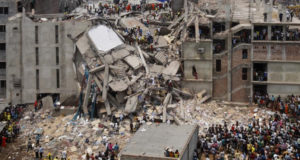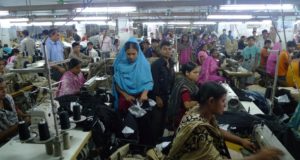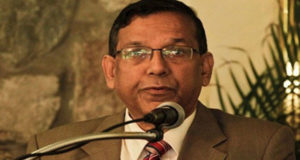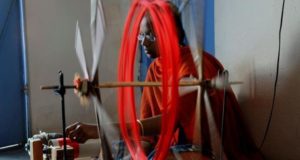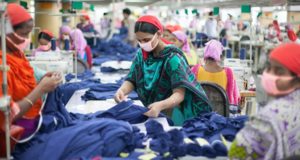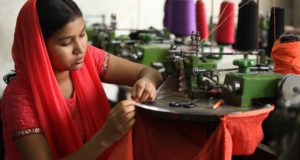On the morning of April 24, 2013, a poorly constructed eight-storey garment factory known as Rana Plaza collapsed in Dhaka, Bangladesh, killing more than 1,130 people in a crush of brittle concrete and rebar. It was the worst industrial disaster in the country’s history, but the toll didn’t end when the building fell. Many later died from injuries sustained in the collapse or were permanently physically disabled. Others developed PTSD or other mental health conditions from witnessing the event.
Read More »November 22, 2017: youth employment trends, FSRT deal and WB funding
Every day, CPD RMG Study team reveals what’s on our economic and apparel radar and curates a selection of the best reports, opinion, and analysis you may have missed. ILO records lack of quality jobs for youth There was a ...
Read More »Govt. to relax obligation for trade union registration
Under pressure from the international community and rights groups, the government has finally agreed to ease the requirements for forming trade unions at factories in the next amendment of the labour law. At present, signatures of at least 30 percent of the workers in the factory are needed to form a trade union -- an uphill task for union leaders. Furthermore, many workers do not want to participate in the election process of trade unions out of fear of getting sacked.
Read More »Govt. agrees to comply with EU conditions to retain trade benefits
Law Minister Annisul Huq yesterday said the Labour Act and Bangladesh Export Processing Zones Authority (BEPZA) Act will be amended considering the recommendations made by the European Union and interest of the country, reports UNB.
Read More »GST woes add to India’s export slump
Placards announcing job vacancies in garment manufacturing units, which used to be a common sight in Tirupur, is a rarity now. But, a cross-section of garment manufacturers maintain that there is acute shortage of labour.
Read More »Industrial automation: a challenge for Bangladesh’s manufacturing future
Manufacturing will continue to be an integral part of securing a better economic future for Bangladesh. According to the World Bank, manufacturing contributed 28.6 per cent to the GDP (gross domestic product) in 2016, accounting for 13 per cent of the total employment.
Read More »November 21, 2017: research in power-energy sector, sector-wise productivity level and sexual harassment in media
Every day, CPD RMG Study team reveals what’s on our economic and apparel radar and curates a selection of the best reports, opinion, and analysis you may have missed. Bangladesh to promote research works in power-energy sector Bangladesh government will ...
Read More »Bangladesh should focus on skills development for growth in labour market
For attaining sustainable and high growth rate of an economy and improving the living standard of its people, the role of skill development cannot be over- emphasised. Skill development not only enhances and expands an individual's capacity of earning, the formation has the potential of transforming the nation's workforce into a more productive one and thereby contributing immensely towards the growth momentum of an economy.
Read More »Factories under National Initiative urged to complete remediation by April 2018
The government has asked all factories from the National Initiative (NI) under the Tripartite Plan of Action to complete their remediation process by April 2018. As part of the government’s initiative to ensure RMG factory safety after the Rana Plaza disaster, the Department of Inspection for Factories and Establishments (DIFE) held a meeting with the factory owners from the NI to evaluate the progress of their remediation in making a safer workplace on Sunday.
Read More »Bangladesh has high stakes in unsafe factories
As Bangladesh looks down the barrel of two humanitarian disasters beyond its control, its government and garment industry risks manufacturing a third. In August, once-in-a-century floods left one third of the country underwater, killing at least 145 people, displacing 300,000, and decimating swathes of Bangladesh’s agricultural heartland. As the water settles and recedes, aid workers say they desperately lackthe supplies needed to stave off disease.
Read More » CPD RMG Study Stitching a better future for Bangladesh
CPD RMG Study Stitching a better future for Bangladesh
